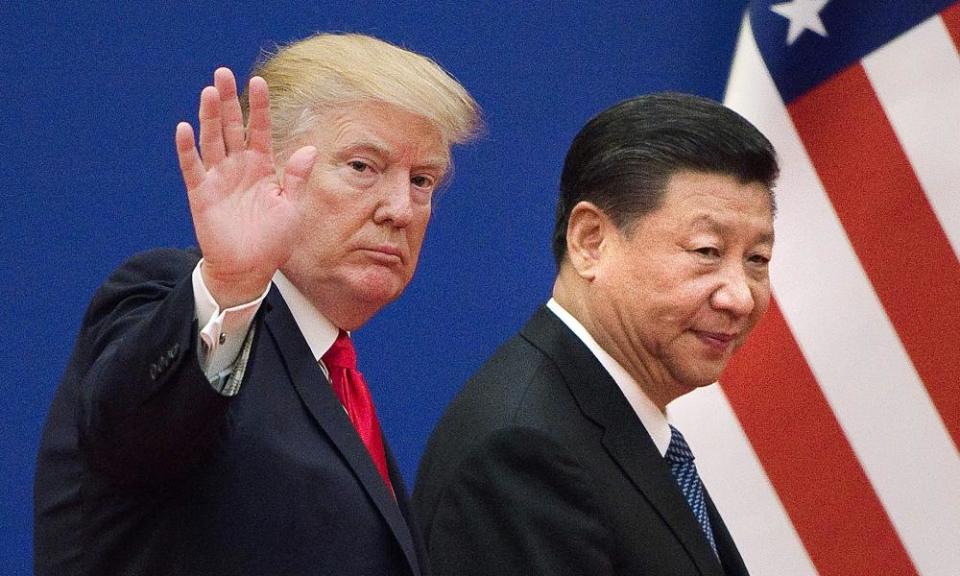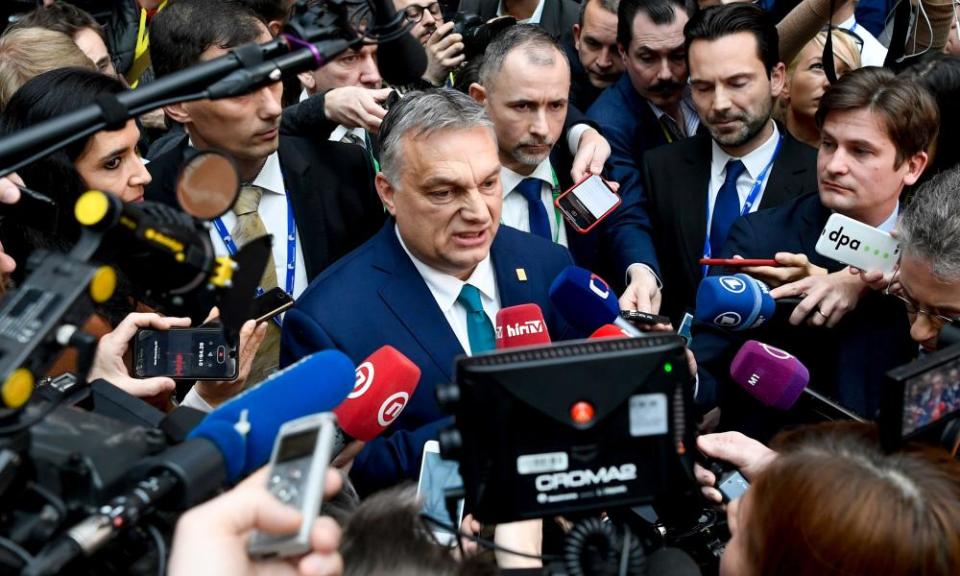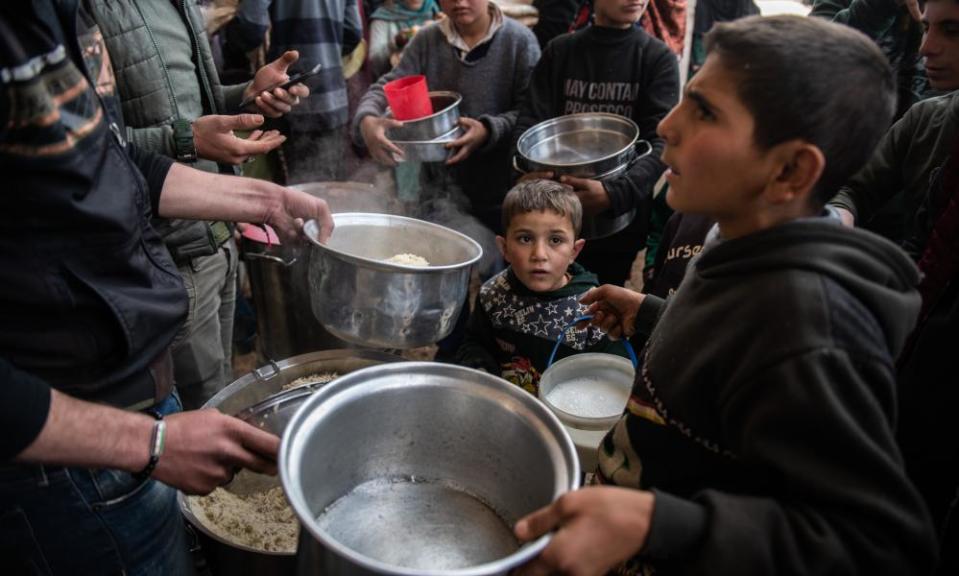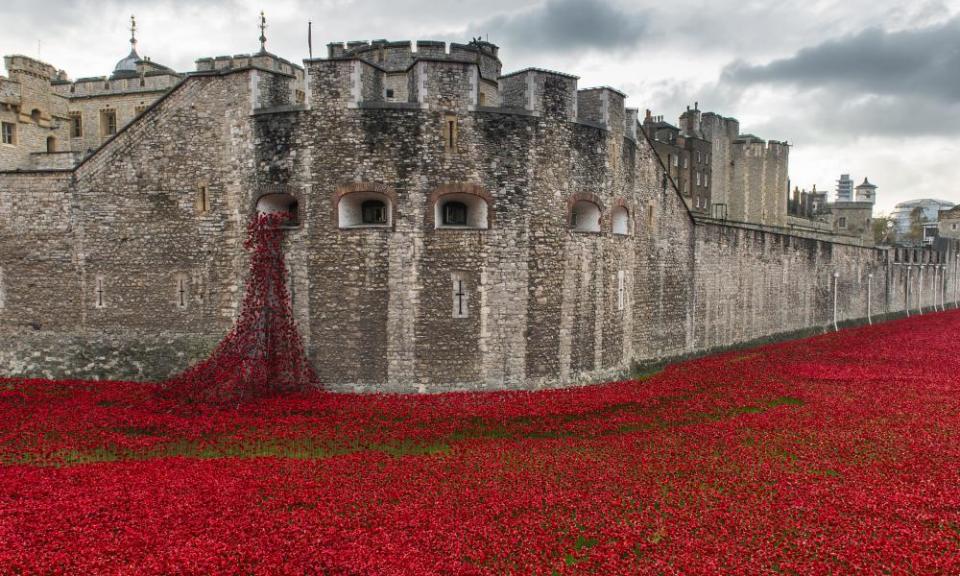Power, equality, nationalism: how the pandemic will reshape the world

The global impact of the coronavirus pandemic poses a fundamental question: is this one of those historic moments when the world changes permanently, when the balance of political and economic power shifts decisively, and when, for most people, in most countries, life is never quite the same again?
Put more simply, is this the end of the world as we know it? And, equally, could the crisis mark a new beginning?
Genuinely pivotal global moments, watersheds or turning points (pick your own terminology) are actually quite rare. Yet if the premise is correct – that there can be no return to the pre-Covid-19 era – then it poses many unsettling questions about the nature of the change, and whether it will be for better or worse.
For countless individuals and families, normal life has already been upended in previously unimaginable ways. But how will the pandemic influence the future behaviour of nation states, governments and leaders – and their often dysfunctional relationships? Will they work together more closely, or will this shared trauma further divide them?
Some analysts see grounds for optimism, for example in beneficial environmental effects in northern Italy and China. Countries hitherto at odds, such as Iran and the UAE, are cooperating, at least temporarily. In the Philippines, the crisis prompted a ceasefire with Communist rebels. Global interdependence and the importance of collective, multilateral approaches have been vividly underscored.
But there is also a more pessimistic view, typified by Stephen Walt, professor of international relations at Harvard University. “The pandemic will strengthen the state and reinforce nationalism. Governments of all types will adopt emergency measures to manage the crisis, and many will be loath to relinquish these new powers when the crisis is over,” he wrote in Foreign Policy magazine.
Walt continued: “Covid-19 will also accelerate the shift in power and influence from west to east. The response in Europe and America has been slow and haphazard by comparison [with China, South Korea and Singapore], further tarnishing the aura of the western ‘brand’… We will see a further retreat from hyper-globalisation, as citizens look to national governments to protect them and as states and firms seek to reduce future vulnerabilities.
“In short, Covid-19 will create a world that is less open, less prosperous and less free.”
Is Walt right? The cop-out answer is only time will tell. Yet the outcome is not preordained. The responses of everybody, from presidents and prime ministers to ordinary citizens, to the myriad challenges and upheavals arising from the pandemic will help determine what happens next.
It’s a chance to reset both global and personal landscapes. Notwithstanding present feelings of powerlessness, there are choices to be made about what kind of future awaits. After Covid-19, everything could be up for grabs.
Balance of power
After early blunders, China’s government is working hard to turn Covid-19, first detected in Wuhan in November, into a national success story. It claims draconian measures to suppress the disease have largely worked. Now, by offering assistance to Italy and other badly affected countries, China is reinforcing its credentials as a global leader. The virus has become a soft power tool to overtake its superpower rival, the US.
If the US remains absent without leave, China may take the crisis as an opportunity to start setting new rules
Mira Rapp-Hooper, US Council on Foreign Relations
“A critical part of this narrative is Beijing’s supposed success in battling the virus. A steady stream of propaganda articles, tweets and public messaging, in a wide variety of languages, touts China’s achievements and highlights the effectiveness of its model of domestic governance,” wrote commentators Kurt Campbell and Rush Doshi in Foreign Affairs magazine.
In contrast, Donald Trump is struggling to dispel a widespread perception of gross incompetence. “The US government’s pandemic leadership has been its own special brand of catastrophe…. [It] has placed its own citizens in unnecessary peril, while sidelining itself from acting as a global crisis leader,” wrote Mira Rapp-Hooper of the US Council on Foreign Relations.
“This domestic and international governance crisis could change the nature of the international order in several ways …. If the US remains absent without leave, China may take the crisis as an opportunity to start setting new rules according to its own global governance vision,” she continued.
Authoritarianism and democracy
China’s challenge to US hegemony was already strengthening on many fronts before the Covid-19 crisis erupted. The pandemic may accelerate this shift. For US-allied democracies that value open governance, civil rights and free speech, this is a worrying prospect.
The trend towards centralised, authoritarian rule evident in countries such as India, Brazil and Turkey, and typified by China and Russia, has coincided with the rise of rightwing nationalist-populist governments and parties in Europe. Some are now following China’s lead in attempting to weaponise the virus for political ends.
“The pandemic unquestionably presents an era-defining challenge to public health and the global economy [but] its political consequences are less well-understood,” the independent monitor, International Crisis Group, warned last week. “Unscrupulous leaders may exploit the pandemic to advance their objectives in ways that exacerbate domestic or international crises – cracking down on dissent at home or escalating conflicts with rival states – on the assumption that they will get away with it while the world is otherwise occupied,” the ICG said.

One example cited by the report was Vladimir Putin’s recent attempt to indefinitely extend his presidency in Russia (although the virus has since forced him to postpone a vote that could have allowed him to stay in power until 2036). Another was a bid by Viktor Orbán, Hungary’s nationalist leader, to renew a state of emergency “that prescribes five-year prison sentences for those disseminating false information or obstructing the state’s crisis response.”
Governments such as Egypt’s have followed China’s example in expelling foreign journalists, restricting media access and curtailing public discussion. Like Boris Johnson and many European leaders, Trump has also assumed emergency powers. From Bolivia, India, Sri Lanka and Iraq to the US, UK and France, elections have been postponed, parliaments suspended, and lockdowns and curfews imposed.
Most people may support such measures in the short term. But what if the crisis is protracted, with a “second wave” running into next year? And what if the new controls are not relaxed or withdrawn after it ends? This is what Harvard’s Stephen Walt meant about the danger of “less free” post-pandemic societies.
Globalisation and multilateralism
Unprecedented government aid packages for businesses and workers, intended to mitigate the disease’s economic and financial impact, have led some analysts to suggest “the state is back” – and that the limits of the postwar neoliberal, free market model have finally been reached.
What the crisis has shown, it is argued, is that when the challenge is truly existential, only the state can offer holistic and equitable solutions. A natural corollary is that the high-water mark of globalisation has arrived. These are radical paradigm shifts. Will they endure?
“The pandemic could be the straw that breaks the camel’s back of economic globalisation,” wrote Robin Niblett, director of the Chatham House thinktank. The architecture of global economic governance established in the 20th century was at risk, he warned, raising the prospect that political leaders may “retreat into overt geopolitical competition”.
For Robert Kaplan of the Eurasia Group, “coronavirus is the historical marker between the first phase of globalisation and the second …. Globalisation 2.0 is about separating the globe into great-power blocs with their own burgeoning militaries and separate supply chains, about the rise of autocracies, and about social and class divides that have engendered nativism and populism …. In sum, it is a story about new and re-emerging global divisions.”
The pandemic is a powerful reminder of two things: the shared challenges of our global village, and the deep inequalities we must grapple with to fight them
David Miliband, International Rescue Committee
If that’s true, few will mourn the passing of the globalisation era. And support for Kaplan’s theory may be found in increased post-pandemic protectionism if, as some predict, countries attempt to limit future exposure to global threats. The UN warned last week of worldwide food shortages caused by lack of workers, tougher immigration controls, sanctions and tariffs – and called for a new, more open approach.
The weakening of multilateral forums and institutions, evident before the crisis, is another sign of a shrinking world. Trying to revive their collective clout, the wealthy G20 countries belatedly pledged last week to do “whatever it takes” to fight the virus. But it remains largely unclear what that entails in practice, and who will take the lead.
Fragile world
The pandemic and its aftermath could be a game-changer for poorer countries with limited resources and means of recovery, and for refugees and people in conflict zones – but probably not in a good way.
The ICG report is blunt: “The global outbreak has the potential to wreak havoc in fragile states [and] trigger widespread unrest …. If the disease spreads in densely packed urban centres, it may be virtually impossible to control.” This is precisely the fear stalking South Africa’s townships right now.
The report said the dramatic global economic slowdown would disrupt trade flows and create unemployment in commodity-exporting poorer countries. “Its implications are especially serious for those caught in the midst of conflict if, as seems likely, the disease disrupts humanitarian aid flows, limits peace operations, and postpones diplomacy.”

War-afflicted Syrians, Afghans, Somalis, South Sudanese and Yemenis could be especially badly affected. That’s why the UN last week launched an appeal for $2bn in humanitarian aid. Its secretary-general, António Guterres, wants trillions more in global financial stimulus to prevent “millions” of deaths. “Covid-19 is threatening the whole of humanity and the whole of humanity must fight back,” he said.
“The pandemic is a powerful reminder of two things: the shared challenges of our global village, and the deep inequalities we must grapple with to fight them,” said David Miliband, who heads the International Rescue Committee. “Coronavirus is not just a problem for rich countries. We are only as strong as our weakest health system.”
Whether the international community heeds this and similar calls will be a key test.
Resilience and paranoia
The crisis has exposed an endemic lack of resilience, symbolised by chronically under-resourced healthcare systems in even better-off countries. The decision of many governments to call in the armed forces to help with logistics and manpower partly reflects fears that weakening social cohesion may lead to disorder on the streets.
“If governments have to resort to using paramilitary or military forces to quell, for example, riots or attacks on property, societies could begin to disintegrate. Thus the main, perhaps even the sole objective of economic policy today [rather than supporting financial markets] should be to prevent social breakdown,” wrote Branko Milanović, a professor at the London School of Economics.
Yet, looked at differently, this kind of national mobilisation can be seen as a positive development rather than a threat to civil liberties – and as a more beneficial use of military power. In Britain as elsewhere, the call to arms has created new legions of NHS volunteers. This renewed sense of national sharing and identity is a much-needed antidote to the regressive nationalism of recent years.
“Looking ahead, governments will have to decide whether to support more cooperative approaches to handling the crisis, not only in global public health terms but also as a political and security challenge,” the ICG said. “All leaders face pressure to focus on domestic priorities, and in particular to ignore conflict risks in weak states …. But there will be a day after.”
It's possible that, over the longer term, democracies will come out of their shells to find a new type of pragmatic internationalism
John Ikenberry, Princeton University
While there is concern the pandemic could deepen divisions between countries and, for example, exacerbate anti-migrant sentiment, there is a fighting chance it will boost international cooperation, support for the UN, and a willingness to pursue dialogue rather than military and economic confrontation. The future need not be a globally debilitating US-China fight for supremacy.
Elisabeth Braw of the Royal United Services Institute warns of a moment of extreme geopolitical vulnerability. “The coronavirus is a perfect opportunity for the west’s adversaries to watch how countries cope – or don’t cope – with a major crisis,” she wrote. But John Ikenberry, professor of international affairs at Princeton University, is less fearful, pointing to the US-led recovery after the 1930s Depression.
Intensifying great power rivalry in a fractured, damaged, poorer world might indeed be the future that awaits, Ikenberry suggested. But it was equally possible that, “over the longer term, the democracies will come out of their shells to find a new type of pragmatic and protective internationalism”.
In other words, after the nightmare, a fresh start.
Five events that changed the modern world

The Versailles peace conference
The 1919-20 conference that followed the first world war was a historic turning point. It marked the formal demise of the German, Russian and Austro-Hungarian empires, the advance of democratic, representative governance in Europe, and the start of what came to be known as the American or transatlantic century.
The Great Depression
The Great Depression, the biggest worldwide economic calamity of the 20th century, began in the US in 1929 after the Wall Street crash. In the ensuing three years, global GDP fell by about 15% (compared with under 1% in the 2008-09 Great Recession). Things did not really pick up again until the second world war – a drastic remedy.
The battle of Stalingrad
Fought on the banks of the Volga in southern Russia in 1942-43, the close to seven-month battle, the biggest in history, proved to be a pivotal moment in the second world war in Europe. For the first time, Hitler’s armies were halted and beaten, and the myth of German invincibility destroyed. About 2 million combatants died.
The fall of the Berlin Wall
The peaceful fall in 1989 of the Berlin Wall, the actual and symbolic dividing line between the Soviet bloc and the west, in effect ended the 44-year-long cold war. The ensuing implosion of the Soviet Union triggered the collapse of Russian-backed regimes around the world, leading the US to proclaim itself the sole global superpower.
The 9/11 attacks
The attacks launched by al-Qaida on New York and Washington DC in September 2001 punctured American illusions of invulnerability and prompted George W Bush to declare a “global war on terror”. This led directly to the US invasions of Afghanistan and Iraq, and the ensuing expansion of anti-western jihadism typified by Islamic State.

 Yahoo News
Yahoo News 